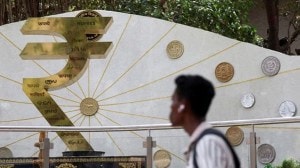RBI projection says 7 plus growth rate is possible
After the recent record 8.4 per cent growth in the second quarter of the current financial year, the Reserve Bank of India (RBI) has revised...

After the recent record 8.4 per cent growth in the second quarter of the current financial year, the Reserve Bank of India (RBI) has revised its growth projections upwards to 7 per cent and above. At the beginning of the year, the apex bank had estimated growth at around 6 per cent which was later revised in November to 6.5 per cent to 7 per cent.
Speaking at the 76th Annual General Meeting of Ficci, RBI governor Dr Y. V. Reddy said that “on latest assessment, the growth rate is likely to be higher at around 7 per cent with a continued upward bias.”
Taking a cautious note on the inflation trend, Reddy said that the inflation in the last two months have not been unexpected, but the magnitude of price rise has been above the original expectations. However, the apex bank was confident of keeping inflation under check. Stating that the economy has of late showed resilience in absorbing shocks including on the oil front, Reddy said that “on the latest assessment inflation would be in the range of 4 per cent to 4.5 per cent and this demonstrates that overall inflationary situation continues to be benign for 2003-04”. Reddy said RBI would continue to “closely monitor the price developments” leaving no room for complacency on the inflation trend.
According to Reddy, assuming that there was no unexpected adverse development, the current monetary stance would continue till the next credit policy in April implying there would be no change in interest rates for the moment.
Asserting that overall developments in the economy were favourable and provide ‘the main springs’ for a revival of investment by industry, RBI governor said that the forex reserves were at a more comfortable level than ever before and there was adequate liquidity in the system. Though impressed by the increased credit off-take in the priority sector, Reddy said there was scope for further improvement with regard to credit pricing and credit delivery.
Asserting that Indian forex market continued to witness orderly conditions in recent months, Reddy said there were, however, merging pressures on the distribution of the burden on adjustment, mainly between US, Euro areas and Asia, especially Japan and China. Maintaining that there had been marginal improvement in central government finances, Reddy said the gross fiscal deficit might get further relief because of the debt swap by State governments.
- 01
- 02
- 03
- 04
- 05































